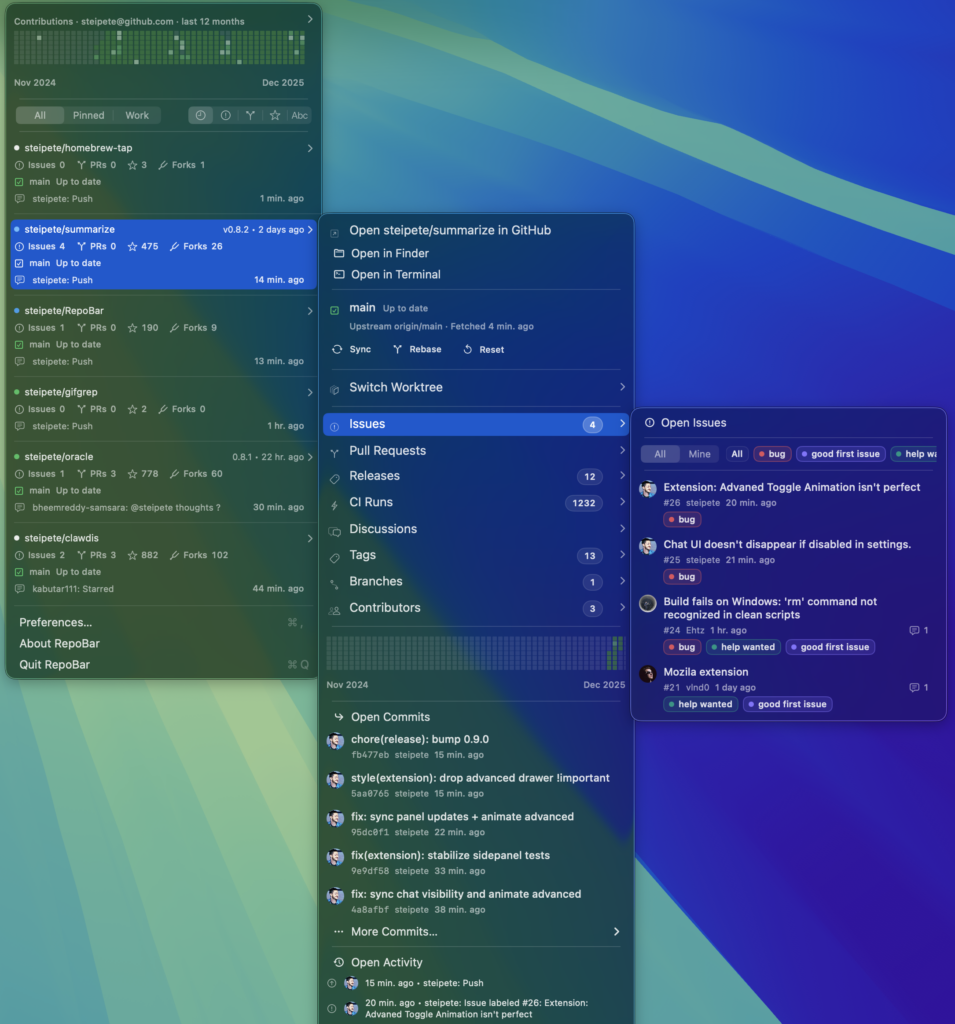
I make tools to help people write great software. I am a software engineer at Apple helping businesses succeed.
Previously, I led the platform team for Yahoo Mail’s web application which is relied upon by millions of people every day around the world.
-
Something Big Is Happening ↗︎
The person who walks into a meeting and says “I used AI to do this analysis in an hour instead of three days” is going to be the most valuable person in the room. Not eventually. Right now. Learn these tools. Get proficient. Demonstrate what’s possible. If you’re early enough, this is how you move up: by being the person who understands what’s coming and can show others how to navigate it.
Build the habit of adapting. This is maybe the most important one. The specific tools don’t matter as much as the muscle of learning new ones quickly. AI is going to keep changing, and fast. The models that exist today will be obsolete in a year. The workflows people build now will need to be rebuilt. The people who come out of this well won’t be the ones who mastered one tool. They’ll be the ones who got comfortable with the pace of change itself. Make a habit of experimenting. Try new things even when the current thing is working. Get comfortable being a beginner repeatedly. That adaptability is the closest thing to a durable advantage that exists right now.
Here’s a simple commitment that will put you ahead of almost everyone: spend one hour a day experimenting with AI. Not passively reading about it. Using it. Every day, try to get it to do something new… something you haven’t tried before, something you’re not sure it can handle. Try a new tool. Give it a harder problem. One hour a day, every day. If you do this for the next six months, you will understand what’s coming better than 99% of the people around you. That’s not an exaggeration. Almost nobody is doing this right now. The bar is on the floor.
-
You Are Here ↗︎
Marc Brooker:
Building systems remains hard. Can I assume you’re familiar with Amdahl’s Law? That’s what’s going on: a massive speed up on a portion of the problem, but as that portion speeds up it becomes less and less of a contributor to the overall speedup. Lowering the costs of the rest of the problem is work that remains to be done. It’s going to take a long time, because the real world is fully of sticky problems, surprising feedback loops, human stubbornness, and the occasional adversary.
There’s also going to be great value in ideas. Integration and translation are solved problems. Simple analysis, and small scale synthesis are too. But new ideas, real transformative new ideas, remain hard to come by. And, as the lever gets longer, more and more valuable.
Software’s first act is over. The second act won’t go like anybody expects, but I can bet that it’ll be more interesting, more economically valuable, and more mentally stimulating than we can imagine right now.
The overall performance improvement gained by optimizing a single part of a system is limited by the fraction of time that the improved part is actually used.
Amdahl’s law, Reddy, Martin (2011). API Design for C++. Burlington, Massachusetts: Morgan Kaufmann Publishers. p. 210About an hour ago, Opus 4.6 created VAPID Web Push notifications for a personal web app in 17 minutes while I was spending time with family. It also designed and created its app icon.

Web Push Notification from my personal web app, Hyperlane The hard part is everything else: Transformative new ideas. Taste and agency. And anything outside an automated feedback loop.
The easy part is converting business logic to code — that cost is quickly approaching zero.
OpenClaw gives a glimpse of the future, but my bottleneck right now is time I can spend in front of a computer for a very good reason. I have yet to sit in front of my Mac long enough to bootstrap it, so much of its power goes unused.
Claude does a marginal job making ESPHome LVGL UI because it’s rare but even more so because it cannot yet see the outcome and enter a feedback loop. Same for low level Vite internals.
But when there’s a clear outcome and benchmark, amazing results are possible like building a C Compiler with a team of agents.
These barriers are coming down slowly which will produce more speedup.
It’s an incredible time to be a developer.
-
Our Growing Family
My wife Jeeyun and I welcomed our second daughter in January. We thank God for what He’s already done in our family and what He will do as our family grows. More →
-
RepoBar ↗︎
RepoBar keeps your GitHub work in view without opening a browser. Pin the repos you care about and get a clear, glanceable dashboard for CI, releases, traffic, and activity right from the macOS menu bar.
Works with GitHub Enterprise. I’ll be trying this out when I’m back to work next year.
RepoBar signs in via browser OAuth and stores tokens securely in the macOS Keychain. It supports both GitHub.com and GitHub Enterprise (HTTPS). No tokens are logged.

Screenshot courtesy of Peter Steinberger -
Vite 8 Beta: The Rolldown-powered Vite ↗︎
The Vite Team:
We’re excited to release the first beta of Vite 8. This release unifies the underlying toolchain and brings better consistent behaviors, alongside significant build performance improvements. Vite now uses Rolldown as its bundler, replacing the previous combination of esbuild and Rollup.
Rolldown supports the same plugin API as Rollup and Vite which keeps most existing plugins working.
These Rolldown-powered optimizations are not yet ready but they are very interesting:
- Raw AST transfer. Allow JavaScript plugins to access the Rust-produced AST with minimal overhead.
- Native MagicString transforms. Simple custom transforms with logic in JavaScript but computation in Rust.
Follow
Featured Blog Post
-
Starting at Apple
I will help small businesses succeed by building Apple Business Essentials — a product which brings together device management, 24/7 Apple support, and iCloud storage into flexible subscription plans. More →